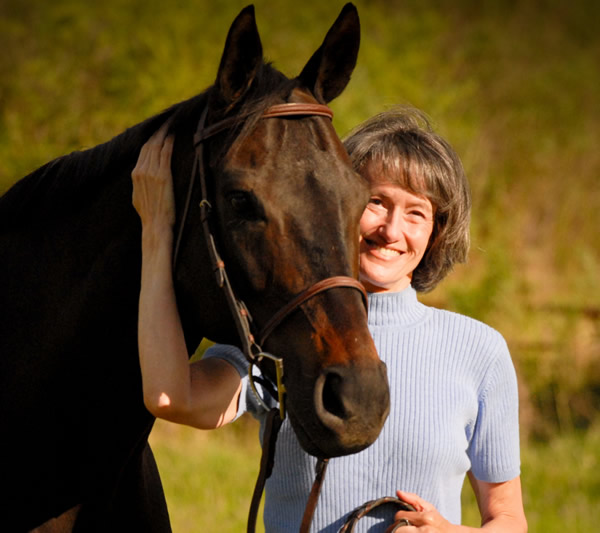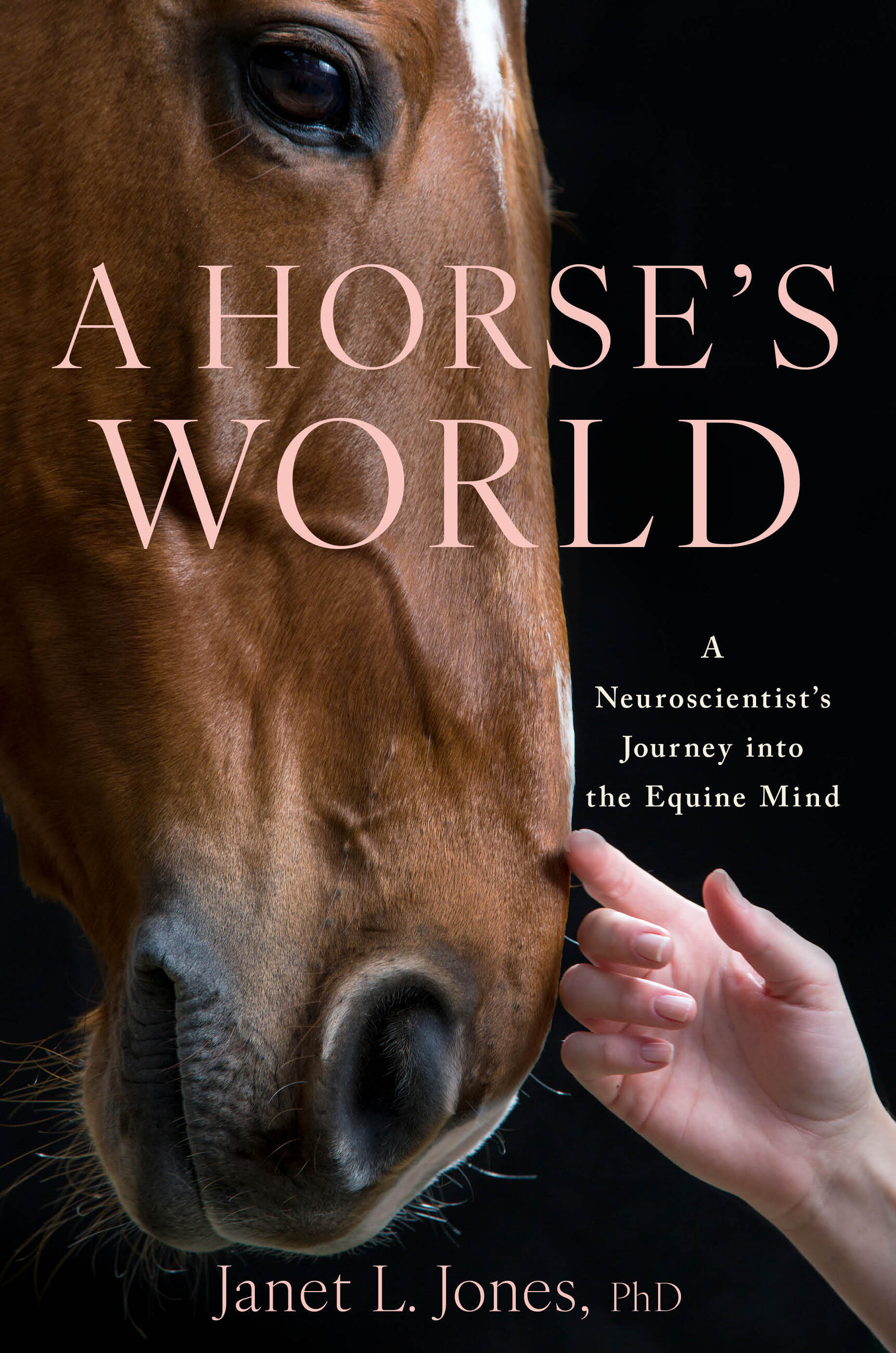TRUE TRAINING 77 - "Hey! She Belongs to Me!"
My own horses watch closely when they see me riding a horse in training. One of my former horses ran the fenceline whinnying for an hour the first time he saw me ride a usurper. Cory was hot and nervous to begin with, but never produced that behavior around other horse-and-rider teams at a busy stable. After a month or so, he became accustomed to seeing me on daily training horses and took it in stride. But the first few times, he was definitely upset. Along with all the frantic galloping, turning, and whinnying, he never took his eyes off us.
True is a very sociable mid-ranking horse in his group. He was raised in pastures with other horses, is very friendly with new horses, and is neither submissive nor dominant. On only one occasion, I saw him display a mildly negative reaction. He was barely three years old and in a new location when a familiar gelding (loose) sniffed True’s hip from behind.
True lifted one hind leg and swiped the air with it in very slow motion, as if erasing a blackboard. The leg remained several feet away from the gelding. In human translation, it seemed like a gentle message: “please don’t bother me back there right now.” That’s the sum total of every negative interaction True has displayed to me during our daily time together over several years.
Until now. The other day, I rode a horse in training past True’s run. True saw us approach and walked to the end of the run, where he would be closest to us. The training horse, Buff, was paying no attention; his focus was fixed on the barn door up ahead. As we walked by, True suddenly lunged over the fence with both ears pinned flat. Fast. He reached out his neck, opened his mouth by nearly six inches, and snapped his teeth together so hard that the resulting “clack” could be heard throughout the barn. He missed taking a chunk out of Buff’s neck by about two inches.
Half an hour later, Buff was ready to load into a trailer to go home. His owner led him past True’s stall door, at the opposite end of the run. I was not involved in this interaction. As Buff walked past, True jumped toward his stall door, reached out the upper half, and performed the same pinned-ear, open-mouthed clack of giant horse teeth. This time he missed Buff’s croup by an inch.
Horses are pretty accurate; it’s very likely that True's misses were purposeful. Given the circumstances, True could easily have connected and bitten both times. Let me add that True knows Buff. On many occasions, they have been groomed near each other with no problems. The difference on this day was only that I was riding the horse.
We have to wonder what this sort of unusual behavior is all about. Or do we? Those who avoid attributing human characteristics to animals would say it was mere coincidence. True just happened to dislike this particular horse. It had nothing to do with me riding the horse or being involved in any way.
Others would notice that True’s behavior was reminiscent of human jealousy and/or protectiveness. They would argue that True’s behavior was purposeful and intentionally directed at the horse I was riding, not coincidental at all. It had never happened before because True had never seen me riding that horse before.
I can’t offer a definitive answer to the question, but it’s one I’m exploring in more scientific detail and hoping to answer in the future. True’s behavior certainly seemed more than coincidental to me and to all of our barn friends who know True well. It wasn't connected to food proximity or feeding time, no other horses were in the mix, and Buff did nothing to provoke True.
As a scientist, I observe closely and try to consider all factors. First, this kind of behavior rarely occurs in horses when I am grooming, tacking up, or schooling another horse from the ground. It’s just when I hop on to ride that other horse—then, look out!
A second factor is that True was biting at the horse, not at me.Yet I was the one riding; it’s not like the horse in training had much choice.
Third, my past horses have become accustomed to my riding horses in training and lose their concern over time. So maybe their initial behavior depends on a lack of familiarity with the situation. All three are good ideas to plop into the hopper for further consideration.

